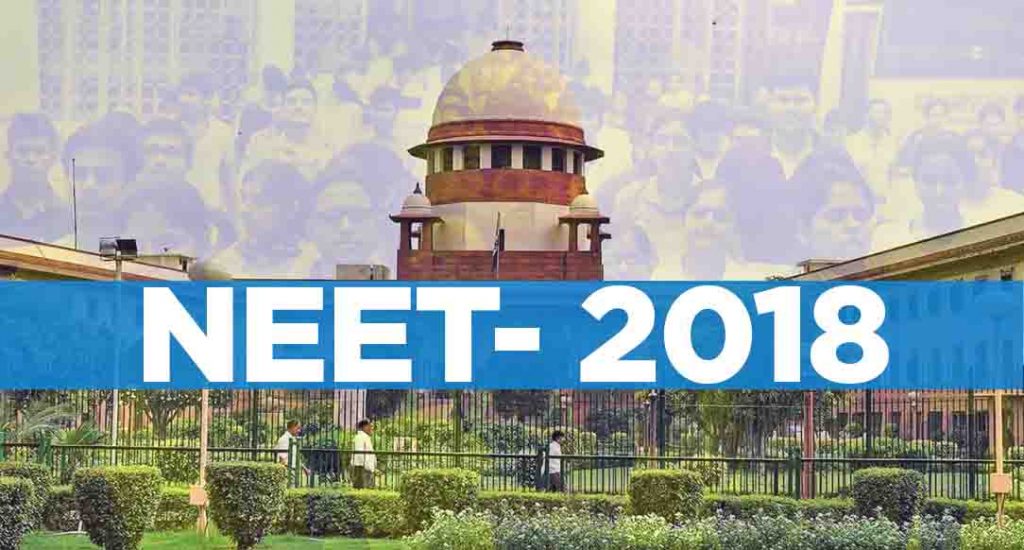New Delhi: The Supreme Court has set aside the judgment of Madras High Court over awarding the 196 grace mark for students, writing exams in Tamil under National Eligibility cum Entrance Test (NEET). 24,000 students were earlier given the grace mark for writing the exam in their native language.
A bench of justice SA Bobde and L Nageswara Rao passed the judgment in an appeal filed by the CBSE against the Madras High Court Verdict. The bench further stated that the High Court has lost sight of its primary duty in such matters and to avoid arbitrary results.
The NEET exam 2018 was conducted in English and 12 other regional languages.
The Madras High Court had earlier given their judgment over a writ petition filed by students alleging wrong translations of several questions from English to Tamil.
The High Court decision was challenged by the CBSE along with students who took exams in English.
SC referred to the statements made by the CBSE in the court in reference to the pattern of NEET 2018.
Instruction no (vi) of the same clearly provided that “in case of any ambiguity in translation of any of the questions, its English version shall be treated as final.”
The Apex court noted that instruction was incorporated with the hall ticket which allowed the entry in the exam hall.
“Instruction (vi) above, assumes significance in this case. This instruction was also incorporated in the hall ticket which allowed admission to the examination hall to ensure that it is not missed.”
The SC also noted that those facing difficulty in the translation of words, instruction (VI) was inserted as precautionary measures already, which clearly suggests that in case of ambiguity refer to the English version.
“This implies that knowledge of the subject in English was considered a requirement and students were expected to resolve any ambiguity by reference to the questions in English Language. We must make note that there is no grievance whatsoever that there was any difficulty with the questions in English language.”


















